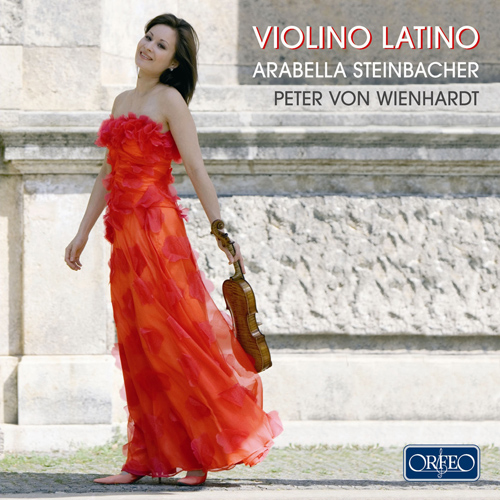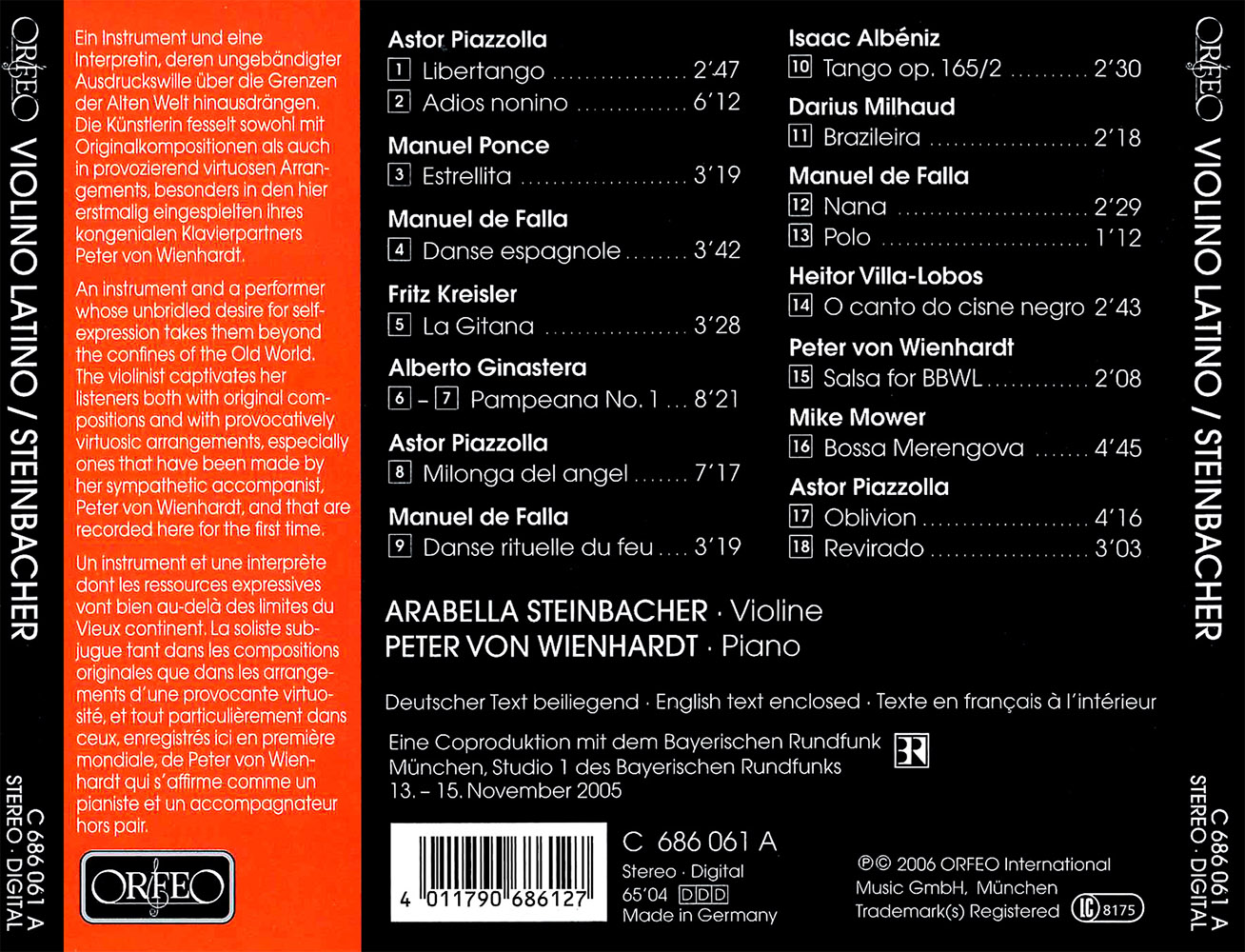Violino Latino
With her much-acclaimed recording of the violin concertos of Darius Milhaud, to which she brought both ethereal weightlessness and naturalness of expression, Arabella Steinbacher showed that virtuoso, playful miniatures are just as close to her heart as the great concertos for her instrument. The Brazilian rhythms that inspired so much of Milhaud’s music, including Le bœuf sur le toit, may also be heard in last year’s CD with the Munich Radio Orchestra.
Arabella Steinbacher is now making good her promise to invite listeners to join her in a series of Latin American dances. Her pianist is Peter von Wienhardt, who is not only an internationally recognized chamber musician, he also features on her new recording as an arranger and as a composer in his own right. Although they have included works by Astor Piazzolla, whose tango nuevo has swept the world in recent decades, their programme is in fact infinitely more wide-ranging than this. Fritz Kreisler’s arrangement of the Danse espagnole from Manuel de Falla’s La vida breve and Jascha Heifetz’s arrangement of Milhaud’s Brazileira both reflect the enthusiasm felt by the great violin virtuosos of the 20th century for Latin American music.
In spite of the strict rules that govern them, the rhythms of the tango, bossa nova and salsa unleash a scintillating display of virtuosity on the part of both performers. In Heitor Villa-Lobos’s O canto do cisne negro, violinist and pianist conjure up the black swan of the title from the undulating underlying motion of the music, revealing a fine ear for the atmospheric density of the writing. Impressions such as these may be found throughout this musical journey to Andalusia, Rio de Janeiro and Buenos Aires, a journey marked by the liveliest and most varied moods and ending impulsively with Piazzolla’s Revirado, in which Arabella Steinbacher prefaces the lyrical and melodious conclusion with a delightfully “?” bow-stroke.

















